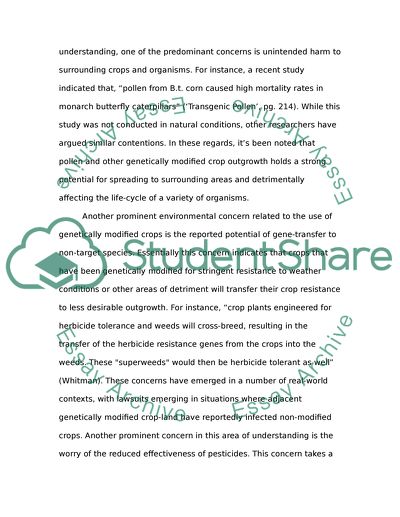Positive and Negative Environmental effects of Genetically Modified Research Paper. Retrieved from https://studentshare.org/agriculture/1434355-positive-and-negative-environmental-effects-of
Positive and Negative Environmental Effects of Genetically Modified Research Paper. https://studentshare.org/agriculture/1434355-positive-and-negative-environmental-effects-of.


